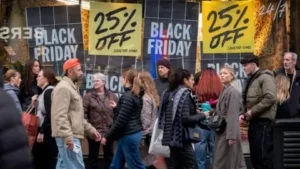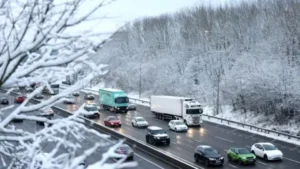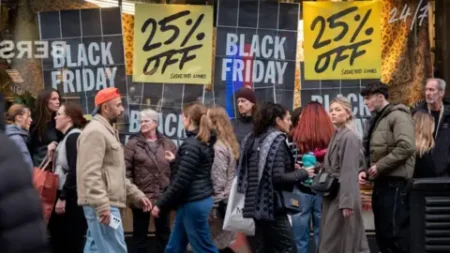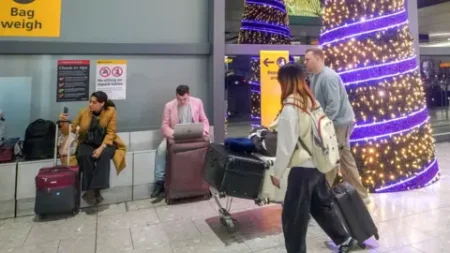**Police Officers Take Second Jobs to Pay the Bills**
In a striking and concerning trend, police officers in Sussex are increasingly resorting to second jobs to cope with the rising cost of living. Recent statistics from the Sussex Police Federation reveal that many officers are struggling to make ends meet on their salaries. Raffaele Cioffi, the chair of the federation, highlighted that officers are grappling with financial challenges in an area regarded as one of the priciest regions outside London. Particularly in May 2025, these figures indicated that a notable 126 officers were registered as holding secondary employment.
The economic landscape that Sussex Police officers navigate is marked by intense financial strain. Adrian Rutherford, the director of people services for Surrey and Sussex Police, has acknowledged these pressing financial realities confronting officers and staff. He underscored that this predicament is exacerbated by the overarching financial constraints that police forces across the nation face.
Adding further weight to the situation, Mr. Cioffi pointed out the gravitas of a police officer’s role, stating that they frequently confront society’s most distressing and dangerous situations. He expressed concern that, despite their important duties, many officers find themselves compelled to seek additional sources of income merely to survive and support their families. This reality raises significant questions about police pay and the sustainability of officer wellbeing.
On a larger scale, the problem is not just confined to Sussex; it reflects a broader crisis within the policing system. Nationally, over 4,000 police officers were granted permission for secondary employment in 2024, which amounts to a twofold increase from data recorded in 2019. This alarming trend demonstrates a systemic issue where the remuneration of police personnel is increasingly at odds with the cost of living, making it vital for the government to take urgent action.
The Police Federation of England and Wales has characterized this situation as a “damning indictment” of the decline in police pay. Amid rising inflation, the Federation is pressing the government to address the disparities in remuneration and to take concrete steps that would enhance the financial stability of police officers. The call for action is loud and clear: officers deserve fair compensation that reflects both their critical role in society and the financial realities of their living conditions.
In a world where the workload and associated stress for officers are already considerable, the added strain of securing a second job can have detrimental effects on their mental and physical well-being. The pressures of managing dual roles can reduce the efficiency and morale of officers while also raising concerns regarding their ability to perform their primary responsibilities effectively.
As the community becomes aware of these challenges, it raises significant questions about how society values the essential services provided by police officers. The sacrifices made by these individuals, who work tirelessly to ensure every citizen’s safety, cannot be overlooked. Public acknowledgment of their challenges and advocacy for improved pay structures are vital steps forward in addressing this societal issue.
Moreover, as the narrative unfolds regarding police employment and remuneration, organizations like the Sussex Police Federation will continue to advocate for their members, ensuring that their voices are amplified in national discussions surrounding police funding and welfare. With public support and government intervention, there lies the potential for transformative changes that can lead to better working conditions and fairer wages for all police officers.
As information about these issues circulates, community members are encouraged to stay informed and involved. Engaging in discussions about police welfare and encouraging participation in advocacy can significantly influence the direction of policy and support for those who serve in law enforcement. The plight of police officers resonates beyond the precincts, inviting society to collectively engage in solutions that can uplift and sustain those committed to keeping communities safe.











